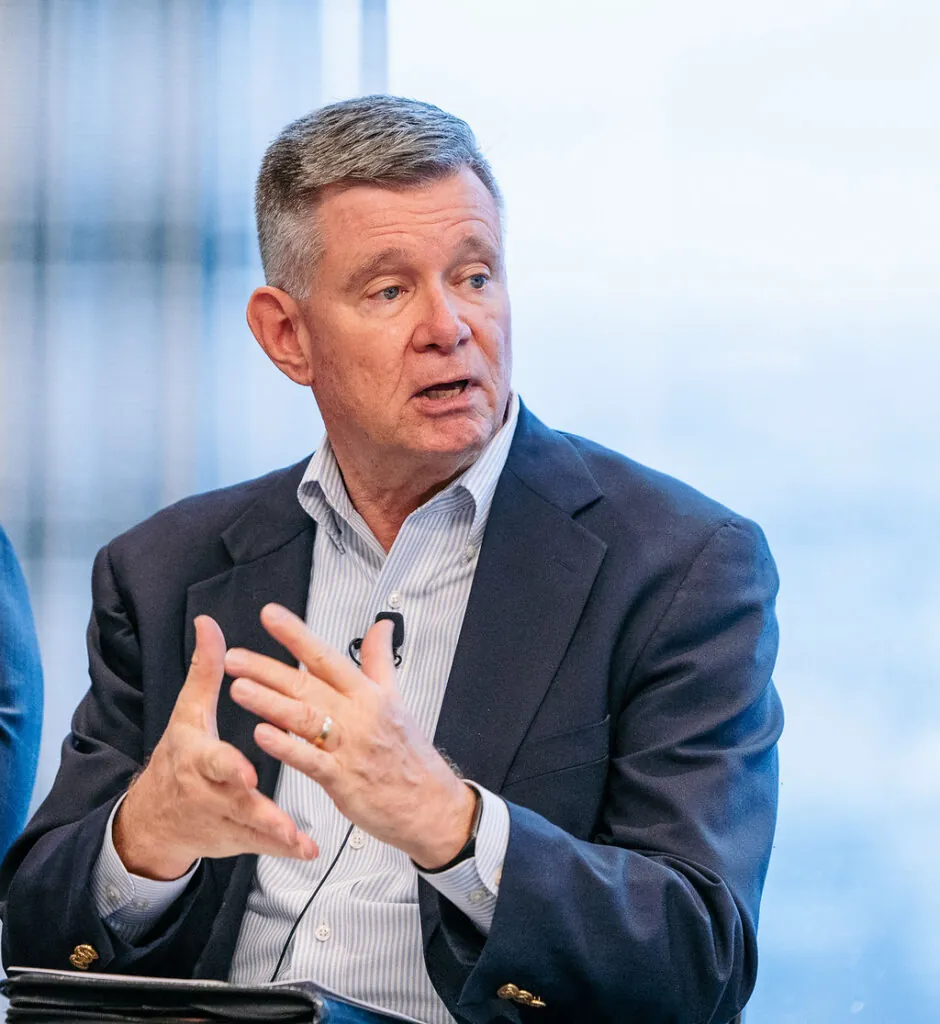How Care Coordination Helps Power United Church Homes’ Memory Care Model, Growth Plans

Nonprofit senior living operator United Church Homes (UCH) will continue to grow its memory care program in 2025 as care coordination plays a crucial role in improving the health of older adults living with dementia.
During a panel at the recent WTWH Media Continuum event in Arlington, Virginia, UCH CEO Kenneth Daniel outlined the importance of the company’s care coordination effort within its market-rate communities.
The Marion, Ohio-based provider relies on care coordination and community-based services for low income residents in creating better health outcomes. This includes its NaviGuide subscription service for individuals or as an employer benefit to receive care coordination and elder care needs.
Within its memory care program, Daniel said care coordination plays a “central role” in creating personalized care plans to address unique needs of older adults living with dementia, with care coordination being able to adapt and meet “evolving needs.”
United Church Homes has 89 communities across the country and a burgeoning model for middle-market senior living with multiple price points.
Growth of UCH memory care program continues
In 2025, UCH will expand its memory care services including increasing access to specialized memory care programming within affordable housing and assisted living communities and bring new approaches to providing advanced memory care-specific therapies with supportive technology within its middle-market portfolio.
“Our goal is to provide not just care, but connection, dignity and quality of life for every person we serve,” Daniel told Memory Care Business.
Also new for UCH’s memory care effort in 2025 will be expanded training for staff to offer care that meets best practices in dementia support through partnerships with the OSU Golden Buckeye Center and Wright State University Department of Clinical Psychology.
Care coordination evolution, long-term care changes
In 2024, UCH was one of a handful of senior living providers selected to participate in the GUIDE model rollout. The new Centers for Medicare and Medicaid Services (CMS) program aims to help those living with dementia to remain in their homes longer, provide caregiver training and brings a new payment method for participating providers to improve patient care coordination.
“We want to reduce the burden on the caregivers and focus them on the right things, providing care, not taking care of paperwork,” Daniel said during the panel.
The senior living nonprofit also pairs its care coordination NaviGuide model with its value-based care provider, CareSource – a Medicaid payor based in Dayton, Ohio – to expand complex health management with social determinants of health.
“It integrates clinical and social together in one continuous platform management,” Daniel said during the Continuum panel.
Merz Photography on behalf of WTWH Media Merz Photography on behalf of WTWH MediaUnited Church Homes CEO Kenneth Daniel speaks during the Continuum conference in Arlington, Virginia.With CareSource moving to a Dual Eligible Special Needs Plan (D-SNP) for its MyCare program to “extend the continuum” to include not just clinical management for dually-eligible older adults with access to care services based on social determinants of health.
“We want to play meaningfully in the Medicaid space and this is how we think where we can add a difference with our expertise in managing social determinants and then have an upside opportunity with Medicaid contracts to manage care in the home,” Daniel said during the panel.
This comes as Daniel said UCH was seeing decreasing numbers of residents in long-term care, with lengths of stay decreasing, having half the number of skilled nursing beds in service now compared to a decade ago.
“We’re not exposing ourselves anymore to that magnitude but trying to diversify and do other things including senior housing development, middle market housing opportunities out there,” Daniel said during the panel.
But, Daniel said, combining wraparound services and affordable housing could be a comparable way forward to long-term care in some instances as affordable housing residents now receive some form of at-home health services.
“We can coordinate that without having to incur the burden of providing that so we look at partnerships a lot and collaboration is a big emphasis that we pursue,” Daniel said.
The post How Care Coordination Helps Power United Church Homes’ Memory Care Model, Growth Plans appeared first on Senior Housing News.


